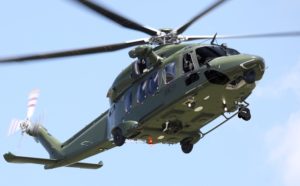Independent analysis group Oxford Economics has published an economic report highlighting the important role that British-generated intellectual property (IP) will play in the nation’s economic recovery.
The report added that Leonardo employees are 80 per cent more productive than the UK average, largely as a result of the IP generated by the company’s highly-skilled engineers in the UK, which is then be traded globally. Leonardo employs 7,500 people across the UK including more than 2,000 in Scotland. The company produces the UK’s AW159 Wildcat and AW101 Merlin helicopters and is at the heart of some of the country’s most advanced defence electronics developments, including the new ECRS Mk2 radar for RAF Typhoon aircraft. Leonardo is one of the founding UK members of the Tempest programme scheduled to go into service in 2035.

UK-based IP creation will create stable jobs through exports
Leonardo is also working with the Ministry of Defence to understand Britain’s aspirations for next-generation military helicopter technologies, including drones, and is proposing a UK-built AW149 troop-transport helicopter to replace the RAF’s Puma fleet when the latter goes out of service. Producing the UK’s next military helicopter on-shore is seen as a way of preserving high value design and manufacturing jobs and boosting the economy, with every £1 invested in Leonardo putting £2.40 back into the local economy.
Norman Bone, Chair and Managing Director of Leonardo in the UK said: “Creating IP in this country keeps people employed in high-value jobs by generating exports, which is incredibly important as we kick-start the economy. Ours are some of the country’s most stable jobs; we elected not to furlough anyone during the Covid-19 crisis, which has had a knock on benefit for our local economies. The important thing is that the UK government continues, alongside us, to invest in Britain’s high-tech engineering sector as we work towards economic recovery.”
Subscribe to the FINN weekly newsletter

